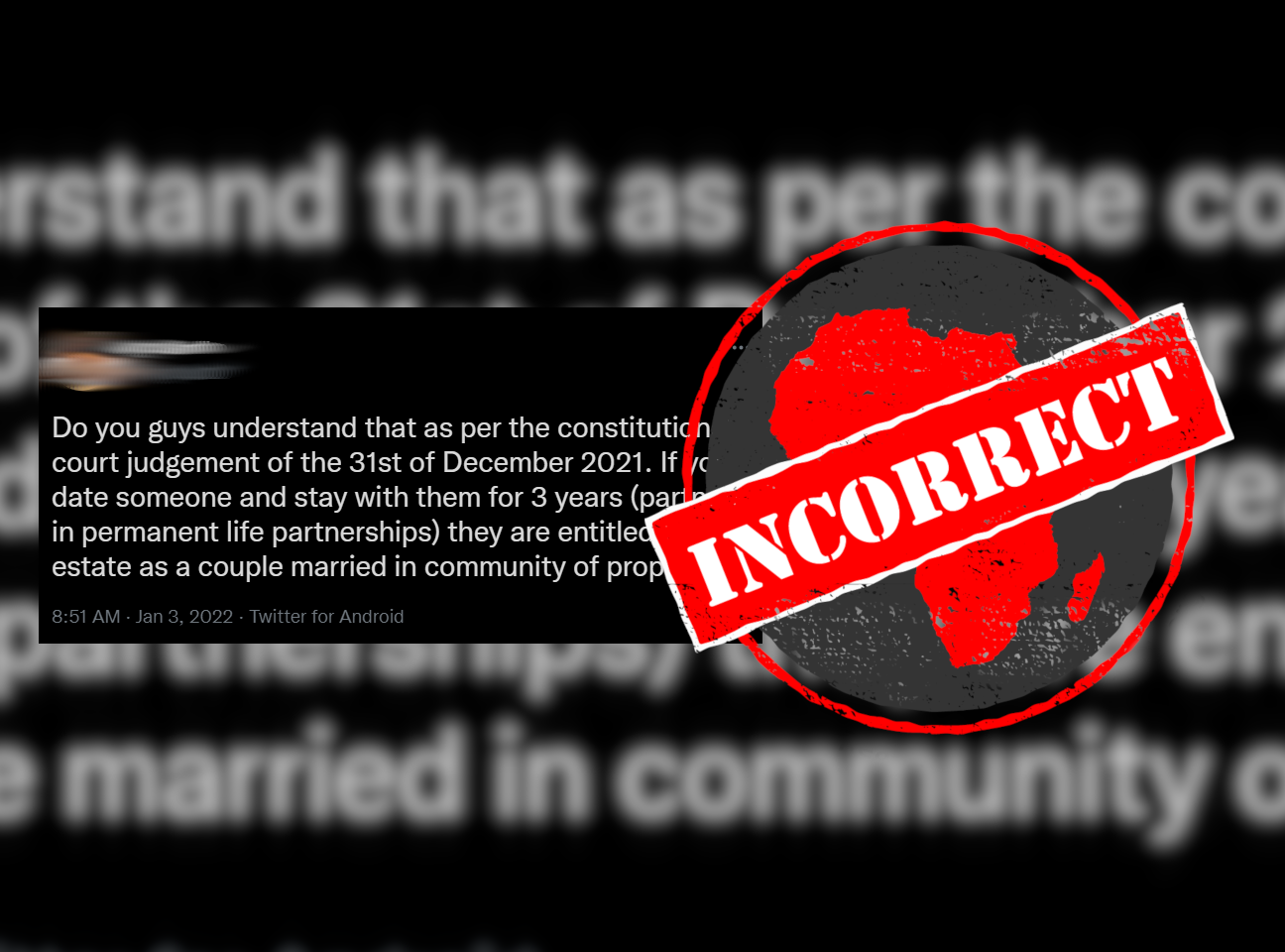“If you date someone and stay with them for 3 years (partners in permanent life partnerships) they are entitled to your estate as a couple married in community of property,” reads a viral tweet posted in South Africa on 3 January 2021. It claims this is “as per the constitutional court judgement of the 31st of December 2021”.
The Constitutional Court is South Africa’s highest court when it comes to interpreting, protecting and enforcing the country’s constitution.
In South African law, people married in community of property have all their assets and debts combined into a single estate. If the marriage is terminated, this joint estate is divided equally between both partners.
The tweet has been retweeted almost 1,600 times so far, attracting more than 3,500 likes.
Has the Constitutional Court ruled that an unmarried couple who live together for at least three years are entitled to each other’s estates in the same way as people married in community of property? We checked.

Constitutional Court ruling on inheritance
In reply tweets, the Twitter user links to a news report and court ruling on Bwanya v Master of the High Court, Cape Town and Others. The Constitutional Court’s ruling in the case, delivered in December 2021, found certain sections of the Intestate Succession Act and Maintenance of Surviving Spouses Act to be unconstitutional
The applicant, Jane Bwanya, was in a romantic relationship with Anthony Ruch from 2014 until his death in 2016. The two had lived together and were engaged.
After Ruch’s death it was discovered that Bwanya was not in his will, which left his entire estate to his mother – who died in 2013. Bwanya argued that she should be entitled to claim spousal benefits as she was his permanent life partner and the two had behaved like a married couple. Her lawyers also argued that while Ruch was alive she had given him “reciprocal duties of support”.
The court ruled that Bwanya was the permanent legal partner of Ruch and that the law was prejudiced against heterosexual permanent life partners as it did not grant them the same legal recognition as same-sex permanent life partners. It ruled that the omission of permanent life partners who “undertook reciprocal duties of support” should be included as spouses in the Intestate Succession Act and the Maintenance of Surviving Spouses Act.
The court gave parliament 18 months to make the recommended amendment.
‘Fundamental differences’ between marriage and permanent life partnership
But the ruling was specifically based on inheritance and maintenance after a person in a permanent life partnership dies. The court also ruled that there were “fundamental differences” between permanent life partnership and marriage.
Prof Amanda Barrat, an associate professor of private law at the University of Cape Town, told Africa Check that the ruling was not based on the marital property regime. This regime deals with the legal status of a couple’s estates – their property and debt – once they become married and determines how their estates will be divided if they get divorced.
“In the context of inheritance from a deceased, the marital property regime of the couple is not relevant,” she told us.
“So it would not be accurate to say that the surviving partner would be treated as though married in community of property.”
africacheck
